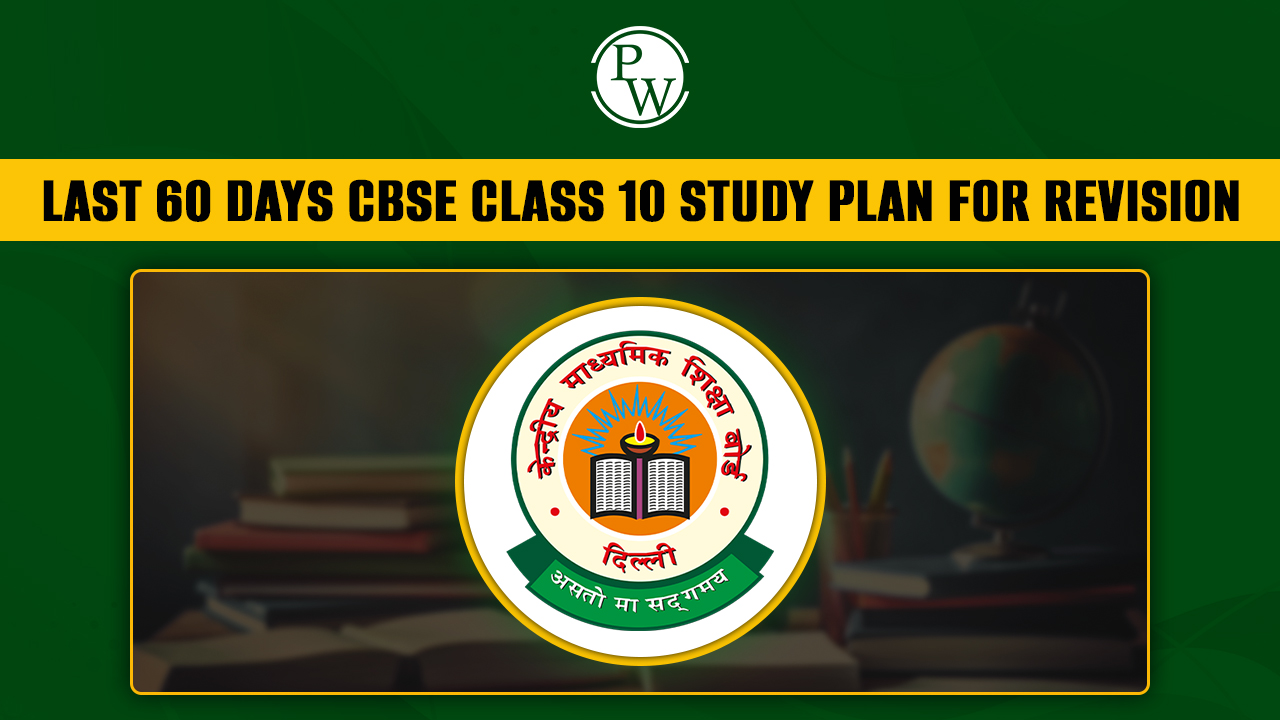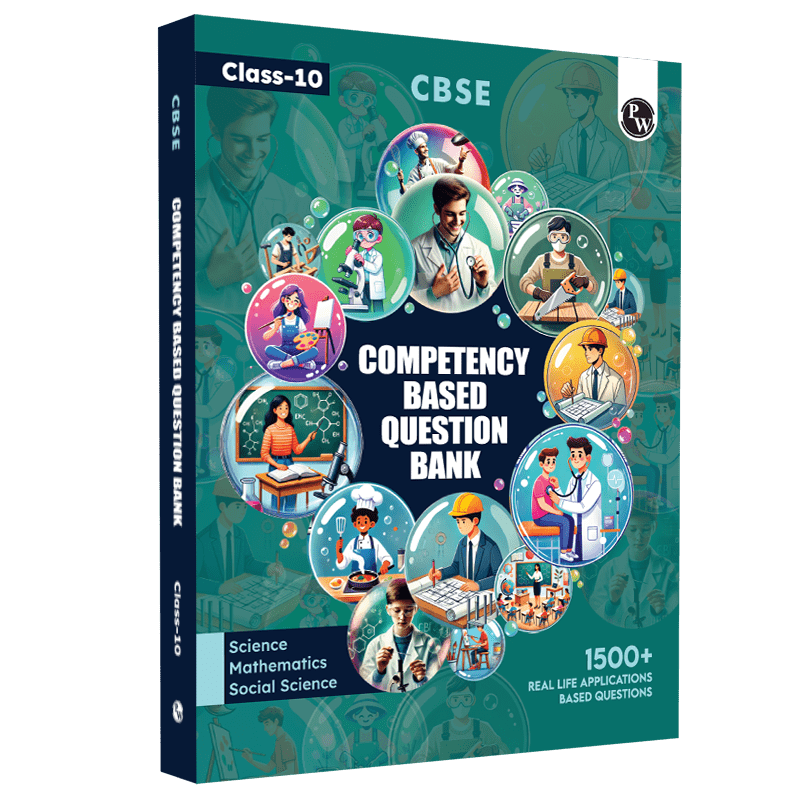Last 60 Days CBSE Class 10 Study Plan for Revision

Last 60 days CBSE Class 10 Study Plan for Revision: As the CBSE Class 10 board exams approach, students must focus on maximising their preparation during the last few weeks. The CBSE Date Sheet 2025 has been officially announced, with the Class 10 board exams scheduled from February 15th to March 18th, 2025, and the Class 12 exams running from February 15th to April 4th, 2025. With just 60 days left, a well-structured study routine is essential to achieve good scores and complete effective revision.
In this article, we present the Last 60 Days CBSE Class 10 Study Plan for Revision. This plan is designed to guide students on how to study for board exams in Class 10, achieve their target of 90% or above, and manage time efficiently for both syllabus completion and final revision. Whether you’re wondering how to prepare for exams in one month or looking for an effective Class 10 study routine, this guide has got you covered.
Check out: All Subject CBSE Sample Paper Class 10
How to Study for Board Exams Class 10?
Preparing for the CBSE Class 10 board exams can seem daunting, but with a strategic approach, you can optimise your study efforts and aim for excellent results. Whether you're wondering how to get 90 in Class 10, need a study plan for Class 10, or are looking for tips on how to prepare for exams in one month, the key lies in a focused and systematic study routine. Here's a step-by-step guide to help you ace your board exams.
Step 1: Start with the Syllabus and Prioritise Topics
The first step is to go through the CBSE Class 10 syllabus thoroughly. Identify the weightage of marks for each chapter and categorise topics into strong and weak areas. This analysis helps you prioritise subjects and allocate time accordingly.
-
Organise Study Material: Use separate notebooks for notes, create tabs for quick references, and highlight critical points.
-
Plan a Revision Timetable: Structure your routine to ensure ample time for final revision and practice.
Month 1: Strengthen Fundamentals
Days 1–20
Focus on building conceptual clarity across all subjects.
Science
-
Clear basic concepts in topics like chemical reactions, human physiology, and electricity.
-
Relate theories to practical applications.
-
Solve previous years' question papers to identify and address weak areas.
Mathematics
-
Concentrate on high-weightage topics such as arithmetic progression, coordinate geometry, trigonometry, and statistics.
-
Practice consistently to improve problem-solving speed and accuracy.
English
-
Work on grammar rules, reading comprehension, and writing skills.
-
Practice concise and well-structured answers.
Social Science
-
Focus on key terms, important dates, events, and their impacts.
-
Make summarised notes for quick revision.
Daily Practice
-
Dedicate time to solving sample papers or taking mock tests to track your progress.
-
Analyse results to refine your study approach.
Month 2: Intensive Practice and Application
Days 21–50
Dedicate this period to mastering concepts and improving your application skills.
Mathematics
-
Solve a diverse mix of problems from high priority chapters.
-
Focus on multistep problems to enhance logical reasoning.
Science
-
Undertake practical projects to reinforce theoretical concepts.
-
Relate topics like electricity and magnetism to real-world applications.
English
-
Read daily to improve vocabulary and comprehension skills.
-
Practice long answer questions and letter writing to polish the presentation.
Social Science
-
Use flashcards for quick memorisation of dates and terms.
-
Stay updated on current events that might appear in exams.
Test Your Skills
-
Write timed practice tests every weekend to build exam stamina.
-
Pay attention to speed and accuracy in written answers.
Final Revision: The Last 10 Days
Days 51–60
In the final stretch, focus entirely on revision and reinforcing your preparation.
-
Solve one full-length sample paper weekly under timed conditions.
-
Avoid learning new topics; instead, refine and consolidate what you already know.
-
Focus on frequently encountered questions and topics from previous practice sessions.
-
Use relaxation techniques like meditation to keep your mind calm and sharp.
Also Check: CBSE Class 10th PYQs
60Day Preparation Study Plan
Preparing for board exams can feel overwhelming, especially with just 60 days left. However, with a well-organised 60-day preparation study plan, you can maximise your efficiency and boost your confidence. This plan ensures systematic coverage of the syllabus, consistent practice, and focused revisions to help you achieve your academic goals.
|
Week |
Subject |
Focus |
What to Do? |
|
1-2 |
All Subjects |
Conceptual Understanding |
|
|
3-4 |
English, Hindi |
Grammar and Vocabulary |
|
|
5-6 |
Maths, Science |
Problem-Solving and Formulae |
|
|
7-8 |
Social Science |
Map Work & Case Studies |
|
|
9-10 |
All Subjects |
Revision and Mock Tests |
|
|
11-12 |
All Subjects |
Final Touches and Confidence Building |
|
PW Class 10 Sample Paper: Ideal for Revision
PW Sample Papers are perfect for students who want to boost up their revision. As the CBSE Class 10 Board 2025 is near, it’s very important to start revising and practising CBSE Class 10 Sample Papers. These PW Class 10 Sample Papers will definitely be your ideal choice when it comes to effective revision. Click the link below to download subject-wise CBSE Class 10 Sample Papers.
Last 60 days CBSE Class 10 Study Plan for Revision FAQs
1. How should I divide my time in the last 60 days for each subject?
Focus more on subjects you find difficult. For example:
-
Maths & Science: Practice problems and revise key concepts.
-
English & Hindi: Work on grammar and writing skills.
-
Social Science: Focus on important dates, events, and map work.
2. What should be my primary focus during the first 30 days?
-
In the first 30 days, focus on understanding the basics and completing your syllabus. Solve sample papers and previous year questions to see how well you're doing.
3. How can I make my revision effective in the last 30 days?
-
In the last 30 days, revise quickly and focus on practicing sample papers and mock tests. Focus on improving speed and accuracy.
4. How do I ensure I cover all topics in the syllabus in 60 days?
-
Create a study timetable and stick to it. Break down the syllabus into small sections and review your progress regularly.
5. How can I revise without feeling tired?
-
Take short breaks every 1-2 hours. Include activities like walking, stretching, or listening to music to relax and stay refreshed.









